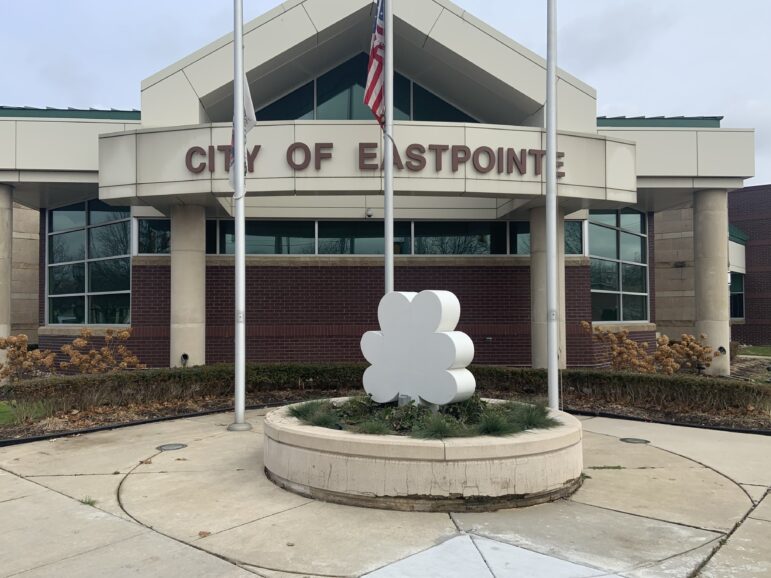
Bridgette Sharpe, an Eastpointe resident, said voting in the gubernatorial election in November 2022 is important.
In this interview, Sharpe takes a stand against voter suppression, which is any legal or extralegal measure or strategy whose purpose is to reduce voting or registering to vote by members of a targeted racial group, political party, or religious community, according to Brittannica.com.: https://soundcloud.app.goo.gl/ufN5GuYRPypM6LDi9
Sharpe, as well as other Eastpointe residents, point to recent examples to suppress the vote in Michigan.
In June, the Michigan Senate passed three laws that would restrict voting rights. According to CNN, one bill requires those requesting mail-in ballots to provide driver’s license or state identification numbers. The other two require ID for in-person voting and allow people to vote only via provisional ballots without it. According to MLIVE, Together, Senate Bill 303 and Senate Bill 304 would require voters to take additional steps to have their ballot count if they don’t have an ID.“
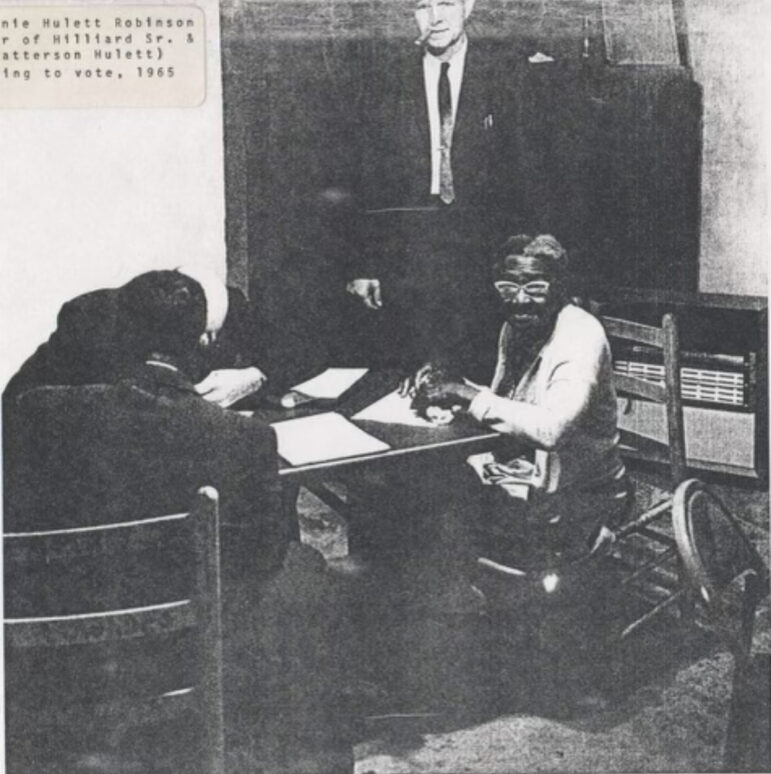

Sharpe is an Eastpointe resident and great-granddaughter of Fannie Hulett Robinson, the first African American to vote in Hanceville, Alabama in 1965. (Robinson is known for being featured in “Bloody Lowndes County,” by Hasan Kwame Jeffries and TIME Magazine: Special Edition “50 years later Martin Luther King Jr. His Life and Legacy.”)
In 2017, the Eastpointe City Council announced a settlement in a federal lawsuit over the rights of Black voters that will impact how residents go to the polls.
According to The Detroit News, “in the complaint to the United States Department of Justice, the government alleged no African-American resident had ever won office for council, school board or legislative district in Eastpointe, despite Blacks making up about one-third of its electorate.” Therefore, “through a four-year consent decree, the Macomb County community is slated to become the first in the state to officially implement “ranked choice” voting in municipal elections. That means for two city election cycles, voters rank candidates on the ballot in order of their preference. The mayor will continue to be elected citywide.”
Voter suppression in the U.S.
Former Detroit resident, Professor Richard Morgan, of the Mississippi University of Woman, is an expert on voter suppression.
“Whether it was the “grandfather clause,” which restricted registration to vote to those whose grandfathers were registered to vote before the Civil War, or literacy tests that African Americans, immigrants, and low-income populations were required to complete, the concept of voter suppression is as old as the amendments that promised the right to vote,” said Morgan.
Morgan then goes on to explain how previous elections help set the stage for voters to become suppressed today.
“Voter turnout in 2020 was the highest in almost 120 years with over 66.7% of the voting-eligible population casting ballots. With these numbers also came unproven claims of voter fraud and rigged elections. Because of these claims, many states have passed voter laws that, according to those who authored the laws, will help protect the voting process. However, these laws are often thinly veiled attempts to suppress the voting population while allowing the party of the majority to maintain their advantage.”
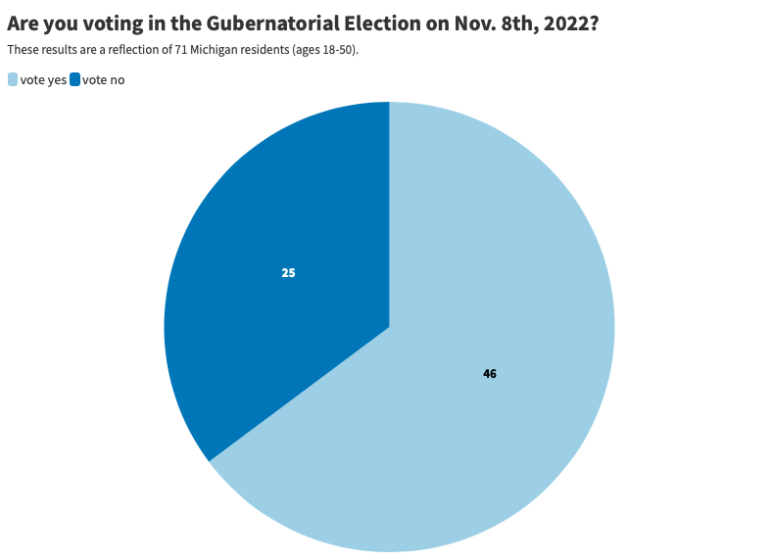
Morgan said voter suppression can hurt citizens throughout the country.“These laws are as wide-ranging as placing strict voter photo ID laws and polling place reductions or consolidations to purging voter rolls. These laws and practices have an adverse effect on communities of color and those who are economically depressed. They also allow for those who are in the higher income population to unfairly control not only the voting narrative but also determine who will make the very laws that govern the entire population,” said Morgan.
Not voting
“I don’t know anyone who votes,” said Annette Hailey, an Eastpointe residents, who has a different perspective on voting. “I am not voting in the gubernatorial election because I do not feel men can govern themselves. They’ve been doing a poor job so far, and I haven’t seen any change.”
Hailey said voter suppression is inevitable.
“What can we do about it? Because voter suppression has been going on for years, it’s always been a problem when it comes to minorities. It always seems to come back to us. When we chose to vote, and win a majority it’s always speculation that we cheated or a call to recount our votes. In my opinion, it’s always easier to vote and be counted in more suburban areas or up north. It’s always us Black Americans that (who) always have problems like this. Other races have problems as well, but why are we still fighting for our basic rights,” said Hailey.
Measures against voter suppression
Kimmy Rich, an election clerk for Eastpointe, said the city has election guidelines in place to protect citizens from voter suppression. “We even allow citizens to register for same-day voting. Citizens can also hand in ballots even if they don’t have a valid driving license … if they have proof of a bill in their name, they can still vote,” Rich said.
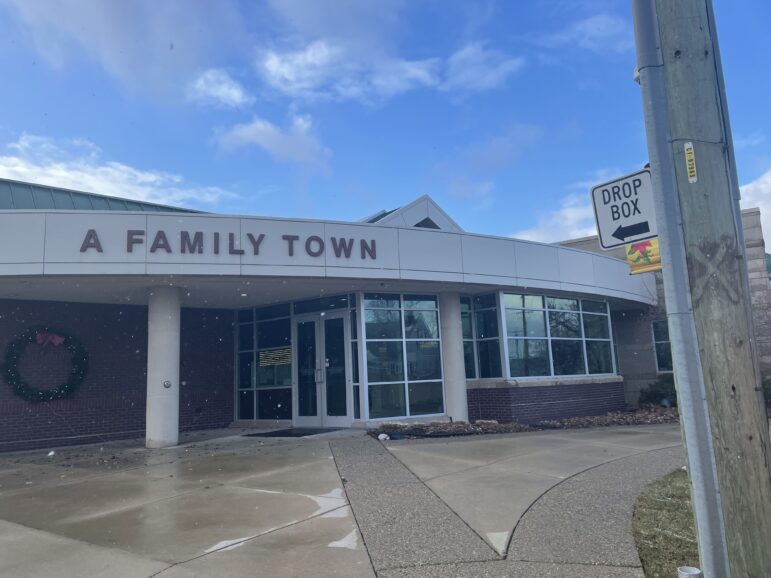
Rich said the importance of following election guidelines when it comes to voting. She has been working at the polls for over 25 years and assures the city values its citizens through protecting voting rights during the election season.
“We follow all the election laws that are given to us, and we are the problem-solvers … if a citizen is supposed to vote we are going to make it happen. We have two absent boxes, a bolt-type system that goes right inside the wall, and a dropbox,” Rich said. She also said Eastpointe is preparing for the gubernatorial election.
“I predict there will be a nice turnout in the governor’s election, slightly under the presidential election. In my opinion, it’ll be a pretty big one because people are either for or against Governor Whitmer,” said Rich.
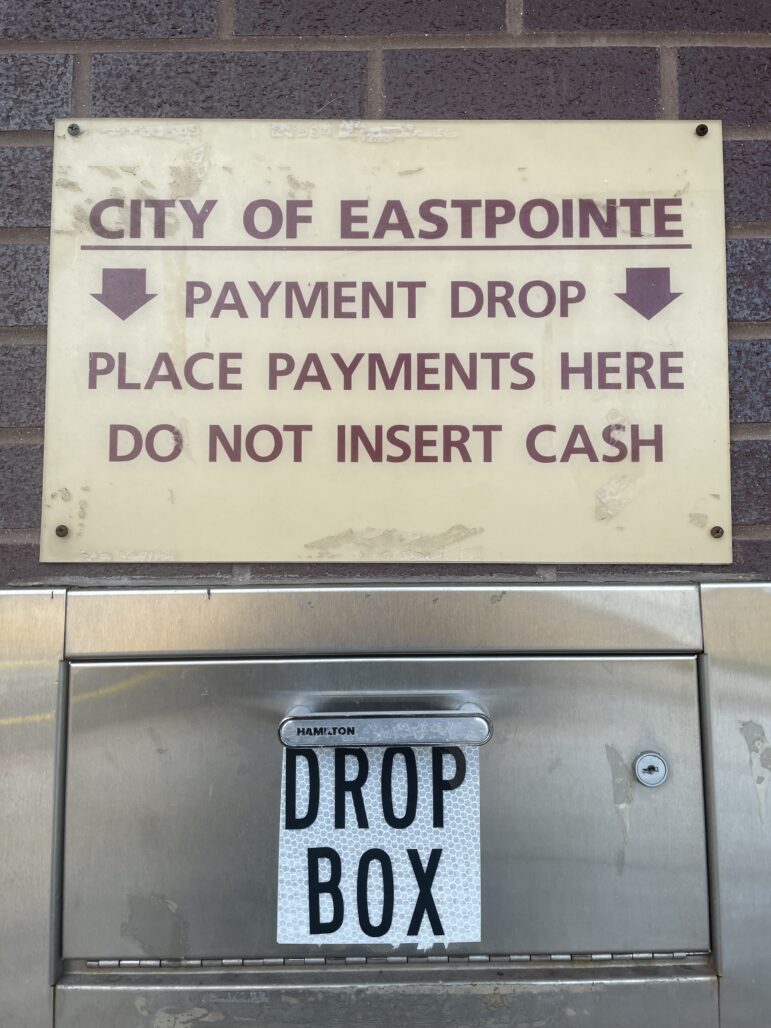
Citizens will be allowed to place their ballots inside dropbox during the election period. Located on the back wall of Eastpointe City Hall. Photo taken by Dea Chappell 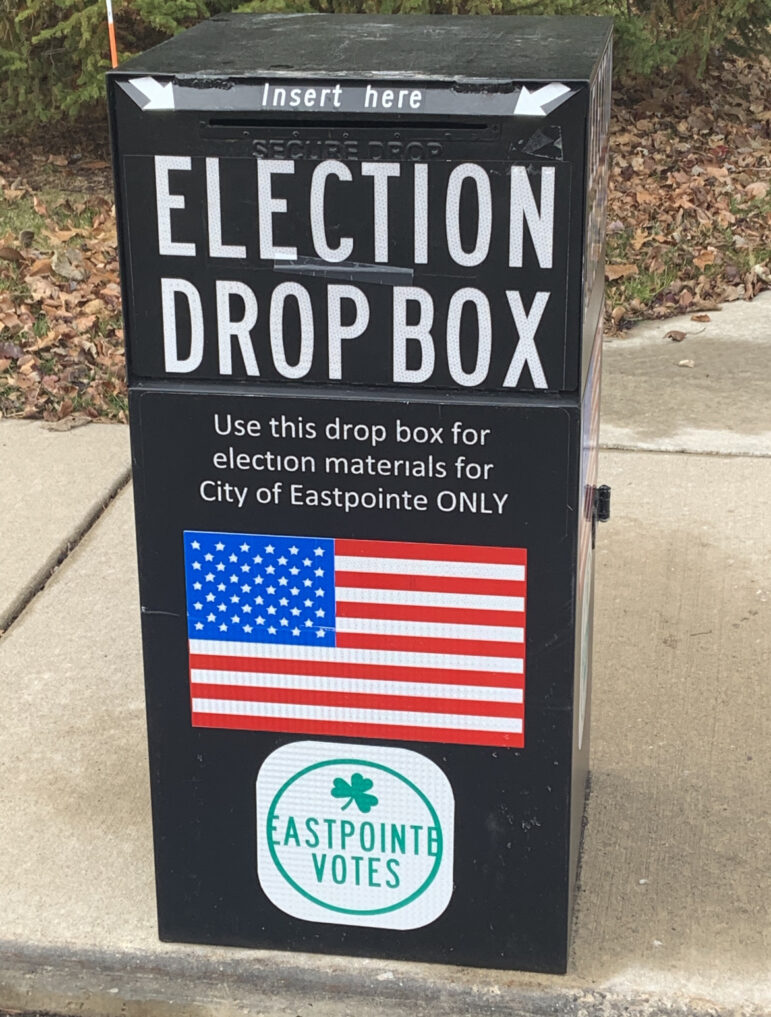
Dropbox photo taken by Dea Chappell, outside city hall that is available for drivers.
“A typical Election Day in Eastpointe is busy and starts off early,” said Rich. The polls open at 5 a.m. and close at 8 p.m., with same-day registration on the rise. After polls are closed, Rich said the results need to be transported to Mount Clemens, resulting in a 20-hour day for election officials. .
Gubernatorial candidates influence on voters
Twelve Republican candidates announced they are running against Governor, Gretchen Whitmer.
Candidates are releasing their goals and plans to better the community.
Business owner Erma “Fay” Jordan, said the majority bases its trust in candidates. “All those who are running make it hard for voters,” said Jordan. “How can we vote on who is best for the people when they show us they aren’t honest. They promise different outcomes but we rarely see them.”
Former Detroit Police Chief James Craig, one of the candidates running for the 2022 Michigan governor’s race, faces public scrutiny as he served as the top law enforcement officials in both Detroit and Cincinnati without being a certified police officer.
Another candidate, Garret Soldano, came up with a campaign launch to capture voters. Solando aired his first campaign ad in October during the Big Ten game, Michigan State vs. Michigan.
Solando’s ad was only aired for a small portion of the state in Grand Rapids, Traverse City, Flint, Marquette, Alpena, South Bend, and Toledo, leaving out voters in Detroit.
“They are just going to do what it takes to sway voters, that’s what they are supposed to do,” said Porscha Hogue, a resident in Eastpointe. “If everyone goes out and votes in the primaries that will steer the outcome come November. It is our job to decide on who is right for us, and who isn’t. Some people may not still be in favor of Whitmer based on opinions toward how she handled the pandemic. Yet it is the job of citizens to make sure the results are in our favor.”
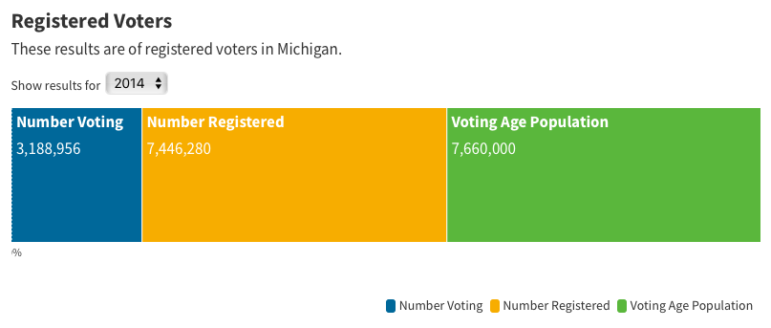
2014 Stacked bar chart created in Flourish by Diamond Shaffer. 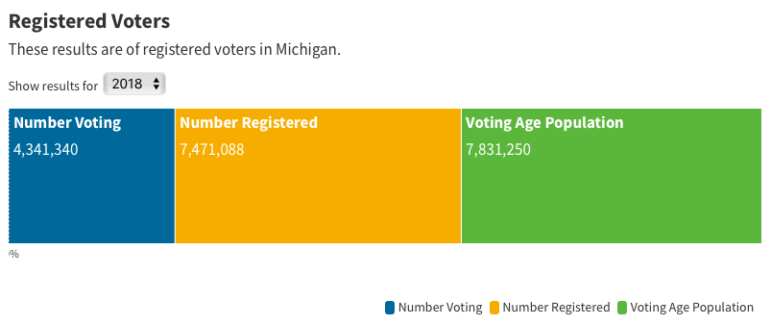
2015 Stacked bar chart created in Flourish by Diamond Shaffer.
Many Republicans view Gov. Whitmer’s response to the current pandemic as a failed attempt. Whitmer’s coronavirus restrictions led a dozen candidates to challenge her seat in office.
The voting rates for the last two gubernatorial elections were high. Approximately 4.3 million of voters went out to vote for the Whitmer vs Schuette election in 2018.
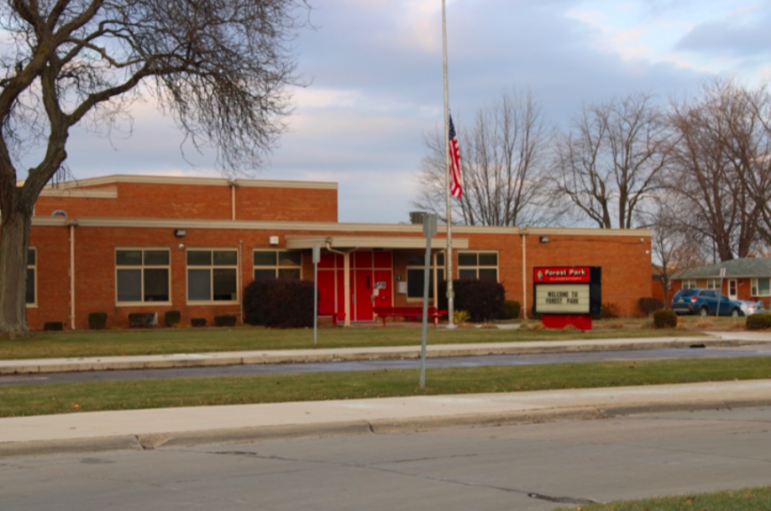
“We need to vote and stand together in November 2022” said Eric Kimble, resident of Eastpointe. “We all took the time to vote for the presidential election. It is just as important to vote in this election. Our state is what needs to be taken care of. We have all these people stepping up promising changes and doing things that already show they may not fit the part. I can’t say who I will vote for as the campaigns are just getting started but knowing there are 12 against one is interesting.”
“We have to all get out and make our vote count next year,” he said.